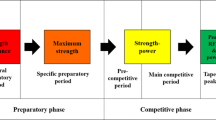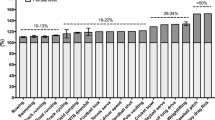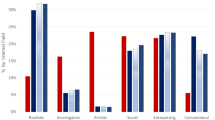Abstract
An extensive body of economic literature suggests that in the United States, there is little gain to a city from using tax revenues to subsidize or in other ways support professional sports franchises. One of the difficulties with these studies is the stability of professional team location. Manchester, England provides an opportunity to examine the growth effects associated with adding and subtracting top tier teams from a single sport in a single area over the course of several decades. Five different Greater Manchester area teams have been in the Premiership with as few as one and as many as four in any given year since the founding of the Premiership. Using Greater Manchester borough level data from 1991 through 2013 we look for changes in gross value added overall and in categories associated with professional sports when Premiership status changes. We find no sustained role for Premiership status, but do find a one off gain in gross value added growth when a team is promoted.

Similar content being viewed by others
References
Allan, G., Dunlop, S., & Swales, K. (2007). The economic impact of regular season sporting competitins: the glasgow old firm football spectators as sports tourists. Journal of Sport & Tourism, 12(2), 63–97.
Baade, R. A., Baumann, R., & Matheson, V. A. (2008). Selling the game: estimating the economic impact of professional sports through taxable sales. Southern Economic Journal, 74(3), 794–810.
Cambridge Econometrics Limited. (2013). Cambridge trust for new thinking in economics. Analysing the Value of Football to Greater Manchester. Sheffield Hallam University and Cambridge University, Sport Industry Research Centre and Cambridge Econometrics. Cambridge, U.K.: Cambridge Econometrics Limited.
Coates, D. (2007). Stadiums and arenas: economic development or economic redistribution. Contemporary Economic Policy, 25(4), 565–577.
Coates, D., & Humphreys, B. R. (1999). The growth effects of sport franchises, stadia, and arenas. Journal of Policy Analysis and Management, 18(4), 601–624.
Coates, D., & Humphreys, B. R. (2011). The effect of professional sports on the earnings of individuals: evidence from microeconomic data. Applied Economics, 43(28–30), 4449–4459.
Hudson, I. (1999). Bright lights, big city: do professional sports teams increase employment? Journal of Urban Affairs, 21(4), 397–407.
Lavoie, M., & Rodriguez, G. (2005). The economic impact of proressional teams on monthly hotel occupacny rates of Canadian cities: a Box-Jenkins approach. Journal of Sports Economics, 6(3), 314–324.
Lertwachara, K., & Cochran, J. J. (2007). An event study of the economic impact of professional sport franchises on local U.S. economies. Journal of Sports Economics, 8(3), 244–254.
Office of National Statistics. (2014). Retrieved October 2014, from Office of National Statistics: http://www.ons.gov.uk/ons/index.html.
Premier League. (2014). Retrieved October 2014, from Premier League: http://www.premierleague.com/en-gb.html.
Rappaport, J., & Wilkerson, C. (2001). What are the benefits of hosting a major league sports franchise? Economic Review, 55–91.
Siegfried, J., & Zimbalist, A. (2006). The economic impact of sports facilities, teams and mega-events. The Australian Economic Review, 39(4), 420–427.
Author information
Authors and Affiliations
Corresponding author
Rights and permissions
About this article
Cite this article
Crutchfield, B., Willner, J. Football in Greater Manchester: Growth Effects of Premiership Status Teams. Int Adv Econ Res 22, 447–456 (2016). https://doi.org/10.1007/s11294-016-9608-6
Published:
Issue Date:
DOI: https://doi.org/10.1007/s11294-016-9608-6




